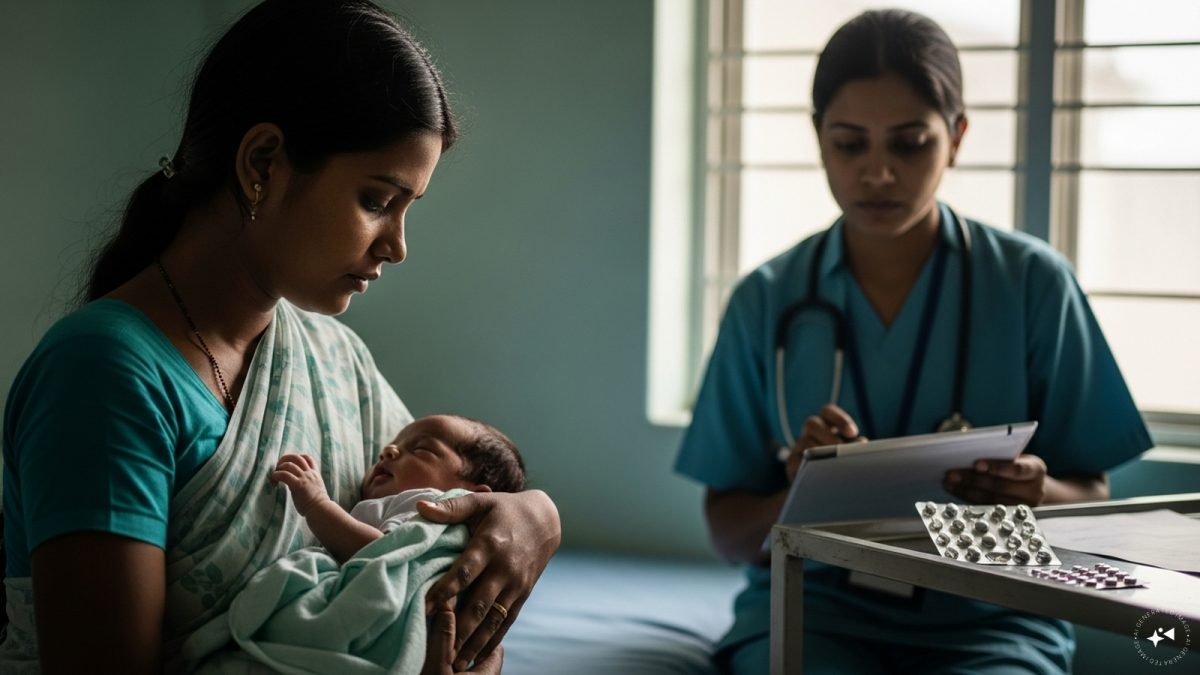Globally, antimicrobial resistance (AMR) is on a steep rise. According to the latest World Health Organization (WHO) report, one in six bacterial infections worldwide in 2023 has become resistant to standard antibiotics. In nations such as India where over-the-counter access and over-prescription remain common, the crisis is particularly acute.
Experts warn that routine or indiscriminate antibiotic use among pregnant, postnatal and surgical patients could have long-term health implications not just for mothers but new-borns too.
Pregnant and postnatal women have emerged as among the highest-risk groups, largely because of unnecessary exposure to antibiotics. The overuse is especially troubling given the disruption it can cause to a woman’s immune system, gut microbiome and hormonal balance, all of which are intricately linked during pregnancy.
Research indicates that antibiotic exposure in pregnancy may alter maternal microbiota and may raise the child’s risk of asthma, allergies or metabolic disorders. Similarly, indiscriminate use can lead to complications such as preterm labour, antibiotic-resistant infections, and fewer effective treatment options during emergencies.
Dr Himani Sharma, Clinical Head & Senior Consultant – Obstetrics & Gynaecology at Cocoon Hospital (Jaipur) said “Pregnancy is a delicate period and even antibiotics, if misused, can impact maternal and foetal outcomes. Unnecessary antibiotics disrupt the mother’s microbiome, increasing risks of preterm birth, yeast infections and delivery-complications. Pregnant women should never self-medicate; antibiotics must follow proper evaluation and strictly under medical supervision.”
After childbirth whether via vaginal delivery or caesarean a woman’s body undergoes intensive healing. But studies have shown that in many cases, postpartum antibiotic prescriptions are not medically justified. In one Indian tertiary hospital in Ujjain, for example, 98% of women post-C-section and 87% of those after vaginal delivery received antibiotics. The mean duration on antibiotics was 6.0 days for C-section and 3.1 days for vaginal delivery. A substantial fraction were also prescribed antibiotics at discharge. The most common antibiotics dispensed were third-generation cephalosporins.
Quick Reads
View AllAs Dr Anil Malik, Senior Consultant – General & Laparoscopic Surgery at Apollo Spectra Hospital, Delhi, explains: “The postnatal period is the time of intense recovery. Large proportions of antibiotics given then are usually unnecessary. Overuse leads to resistant infections, delayed wound-healing and recurrent complications. In many cases, surgical wounds heal with proper hygiene and timely care — antibiotics should be strictly limited to confirmed bacterial infections.”
Risks extend beyond mothers. Infants born to mothers exposed to antibiotics either during pregnancy, labour or lactation are vulnerable too. Studies indicate that maternal antibiotic use can significantly alter the developing microbiome of newborns, including through breast milk. This disruption may reduce colonisation by beneficial bacteria such as Bifidobacteria and Lactobacilli important for immune development and has been linked to increased risks of eczema, digestive problems and weakened immune resilience in early life.
Moreover, unnecessary antibiotic use in postpartum women has been associated with impaired healing not only of surgical wounds but also of bone and musculoskeletal tissues, a concern for women who undergo C-sections or experience post-delivery musculoskeletal strain.
As Dr Mihir Thanvi, Consultant – Orthopaedics at Apollo Spectra Hospital (Jaipur) said “Many new mothers take antibiotics unnecessarily for minor pains or urinary symptoms, believing they are harmless. This weakens immunity and increases the risk of resistant infections after surgery or during postpartum recovery. Responsible use is essential for healthy recovery.”
India is among the world’s largest consumers of antibiotics. A recent study by National Centre for Disease Control (NCDC) found that 57 per cent of antibiotics prescribed across 20 tertiary hospitals belonged to the “Watch” category, drugs with higher risk of fostering AMR while only 38 per cent were in the safer “Access” category recommended by WHO.
Alarmingly, some prescriptions (about 3 per cent) involved antibiotics that WHO discourages for routine use. India’s high consumption, widespread over-the-counter availability and weak regulation make it particularly vulnerable to a “superbug” crisis.
As Dr Mohd Suhel, Senior Consultant – General & Laparoscopic Surgery at Apollo Spectra Hospital, Kanpur, warnd “Antibiotic resistance is shrinking the number of safe, effective drugs available for pregnant women."
“In surgical emergencies, we are witnessing cases where antibiotics fail, forcing clinicians to resort to stronger alternatives with greater risks. The long-term solution lies in strict antibiotic stewardship: prescribing only when necessary, avoiding empirical use and educating patients that antibiotics are not a cure-all.”
Smart and evidence-based antibiotic use is critical to safeguard the health of mothers and new-borns. Through proper diagnosis, discouraging self-medication and raising awareness during pregnancy, childbirth and postnatal care, we can reduce the risks associated with AMR, protecting the next generation before it begins.
)